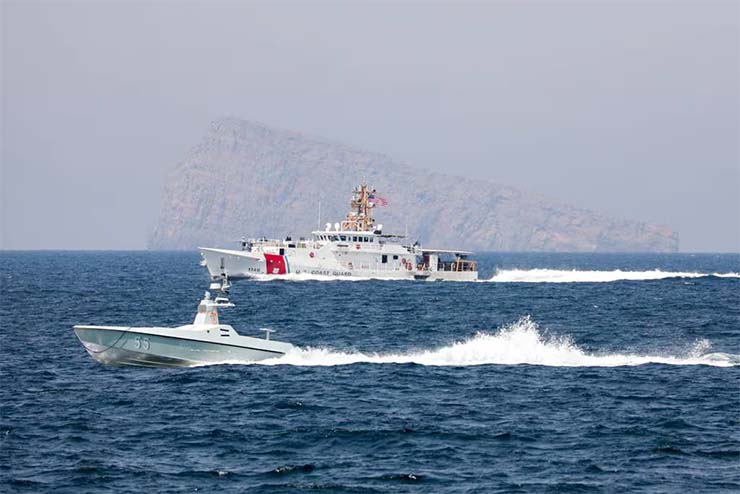
Washington: The US Navy’s message to industry is coming through: the service is committed to buying and operating small unmanned systems on and under the water.
What’s less clear is how the Navy will procure them and with what funding — but one company says it’s moving ahead in developing disruptive systems now and will figure out the business model later.
Jon Rambeau, L3Harris’ president for Integrated Missions Systems, said the company had a couple of one-off efforts with the Navy already — two of its Arabian Fox autonomous surface vessels are operating out of Bahrain as part of US 5th Fleet’s Task Force 59, and L3Harris successfully demonstrated the ability to launch and recover an unmanned underwater vehicle, or UUV, from a submarine’s torpedo tube.
Rambeau said he views these opportunities — through fee-for-service contracts or urgent operational needs statements — as beginning to pave a path for future small unmanned systems acquisition.
The Pentagon’s Replicator program will also help, he said. But, of course, “we’d always like it to go faster.”
Rambeau said his company is set up to go fast. L3Harris integrates commercial sensors onto commercial unmanned underwater and surface vessels whose procurement lead times are “weeks or months, versus years” for large warships.
In addition to looking for ways to sell a small quantity of UUVs to the submarine fleet to begin operations this year, Rambeau said L3Harris is pitching the Navy on a passive sensing and targeting capability that could be installed on a unmanned surface vessel, or USV, and sent out ahead of a manned ship, allowing it to keep emissions low and avoid becoming a target itself.
Rambeau said the cost of this payload and USV is a budgetary “rounding error, as compared to a ship or a combat system or a large active radar array. These are very affordable technologies that can really augment what’s existing today. So we see it as complementary, we see it as a bit disruptive, and it’s exciting.”
Rambeau said these discussions at the flag officer level have gone well, with agreement on both sides for the usefulness of small unmanned systems and the desire to buy them. They just haven’t gotten to the point of the Navy getting past various hurdles and actually buying them.





